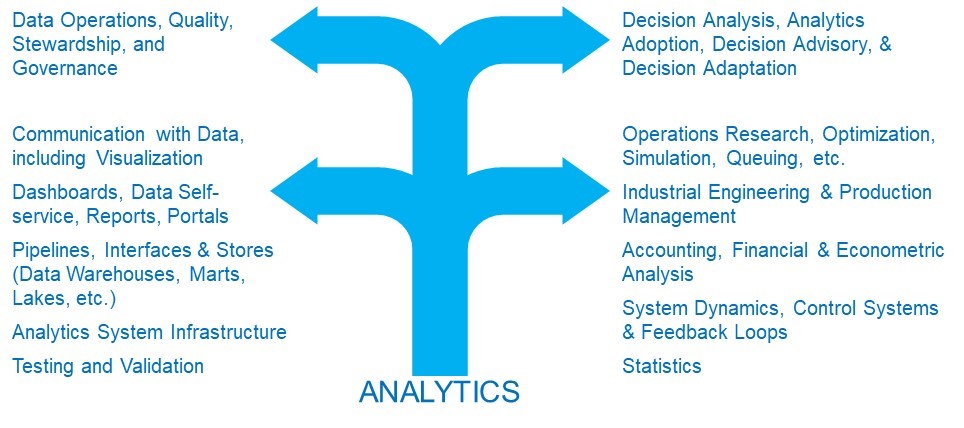How to explore starting a career in Analytics (a.k.a. Data Science)
Many people are interested in a career in Analytics. Aspirants for "Data Science" and "Machine Learning" are included in this category, as chasing a section of the Analytics domain. A career in Analytics attracts people because it’s jobs get hyped as the hottest. They’re bombarded by messages about tools (often Excel, R, and Python), techniques (like machine learning or neural networks), technologies (such as big data or language processing), or roles (such as data scientist, data engineer, data analyst, machine learning engineer, etc.). Because it's new to them, people get confused by the breadth and depth of this domain.
When I interview job seekers looking for a career start in Analytics, I wish someone had told them to explore what they’re getting into before they send in their resume.

First to purpose: Analytics is the application of logical thinking to make and execute rational decisions. Would you like that to be your purpose?
Next to interest: take a tour of Analytics. Practice analysis with Excel. It is the most widely used tool, and has lots of help such as YouTube videos, how-to websites (e.g., Excel Easy), and packaged course-ware such as edX, Udemy, etc. Use Excel to do analyses, the practice helps you to build your logical thinking skills and the analytics knowledge to answer questions that you find interesting. These skills and practice will help you figure out if you like analytics as a profession and help you make better decisions regardless of your chosen career. The Excel skills will also get you a job in analytics.
Don’t get into analytics unless you like the daily application of logical thinking and data analysis. It’s hard work, and most people don’t have to do it all the time. How do you know you like analytics? You analyze for fun. You find subjects to analyze, dig out the data, and answer the questions you raised. If you can’t think of ideas for analytics exploration, review your news-feed or move on to another profession.
Down the road: after you land a job in the Analytics industry, you can end up specializing in different aspects of it.
- Decision Analysis, Analytics Adoption, Decision Advisory
- Operations Research, Optimization, Simulation, Queuing, etc.
- Industrial Engineering & Production Management
- Accounting, Financial & Econometric Analysis
- System Dynamics, Control Systems & Feedback Loops
- Statistics
- Data Operations, Quality, Stewardship, Governance
- Communication with Data, including Visualization
- Dashboards, Data Self-service, Reports, Portals, etc.
- Pipelines, Interfaces & Stores (Data Warehouses, Marts, Lakes, etc.)
- Analytics System Infrastructure
- Testing and Validation
I include the system dev/test streams in this subject because an engineer who doesn’t understand the basis of analytics cannot grasp the scope, nature and purpose of the analytics software. This results in career stalling when system design and architecture become required.

Analytics job roles differ based on the industry, company and business function, for example at CoBot Systems. The tools you need (such as Excel, R, Python, etc.) depend on the role and the company.
Yes, you can do it backwards. Learn a tool like Python or R, convince someone to hire you as an engineer or analyst, and then figure out if you like the job. A fast learning curve means that you’re good with the tool but tells you nothing about your aptitude for solving questions with analysis. You’ll have to figure it out on the job.
Sadly, there are businesses who claim to teach data science and in return for your fees you get to learn how to use R or Python. That’s a waste of money. You can learn it yourself or from a MOOC. You need a teacher to guide you in posing and answering analytics questions with the right tools, and these teachers are rare to find. Experience often turns out to be your best teacher, accelerated by jobs or courses that demand analytical thinking. Internships help.
Improve the hiring decision by providing the data for it. Your talent for analytics can be judged from the analysis you make. Instead of just sending your resume, send your analysis. That analysis must be original, where you found the topic to analyze, got the data, and answered the questions that you raised. It must not be an assignment from your education or work (if you do so, it shows that you cannot think of a topic to analyze). Email your analysis (spreadsheet and write-up) and your resume to hr@cobotsystems.com.
